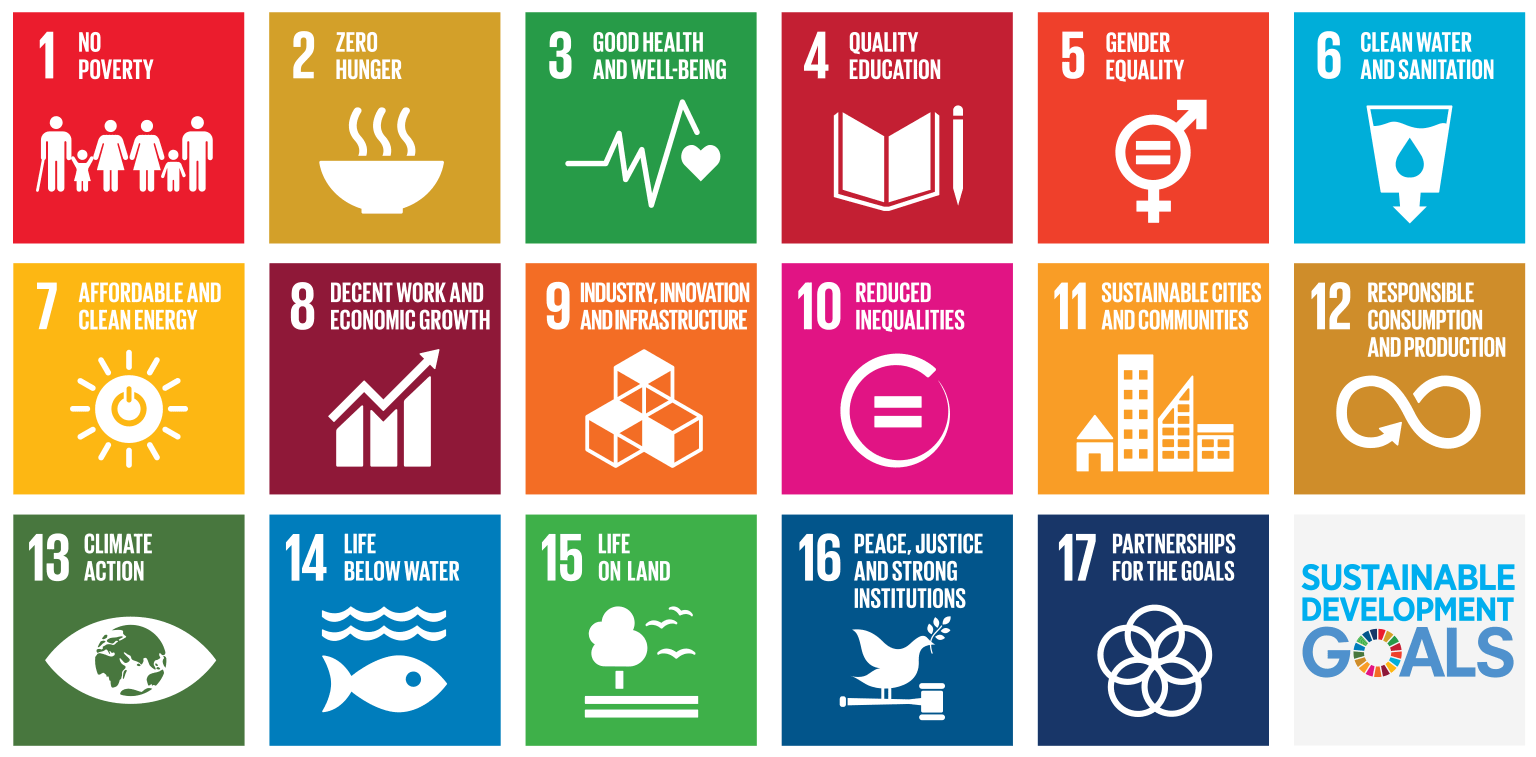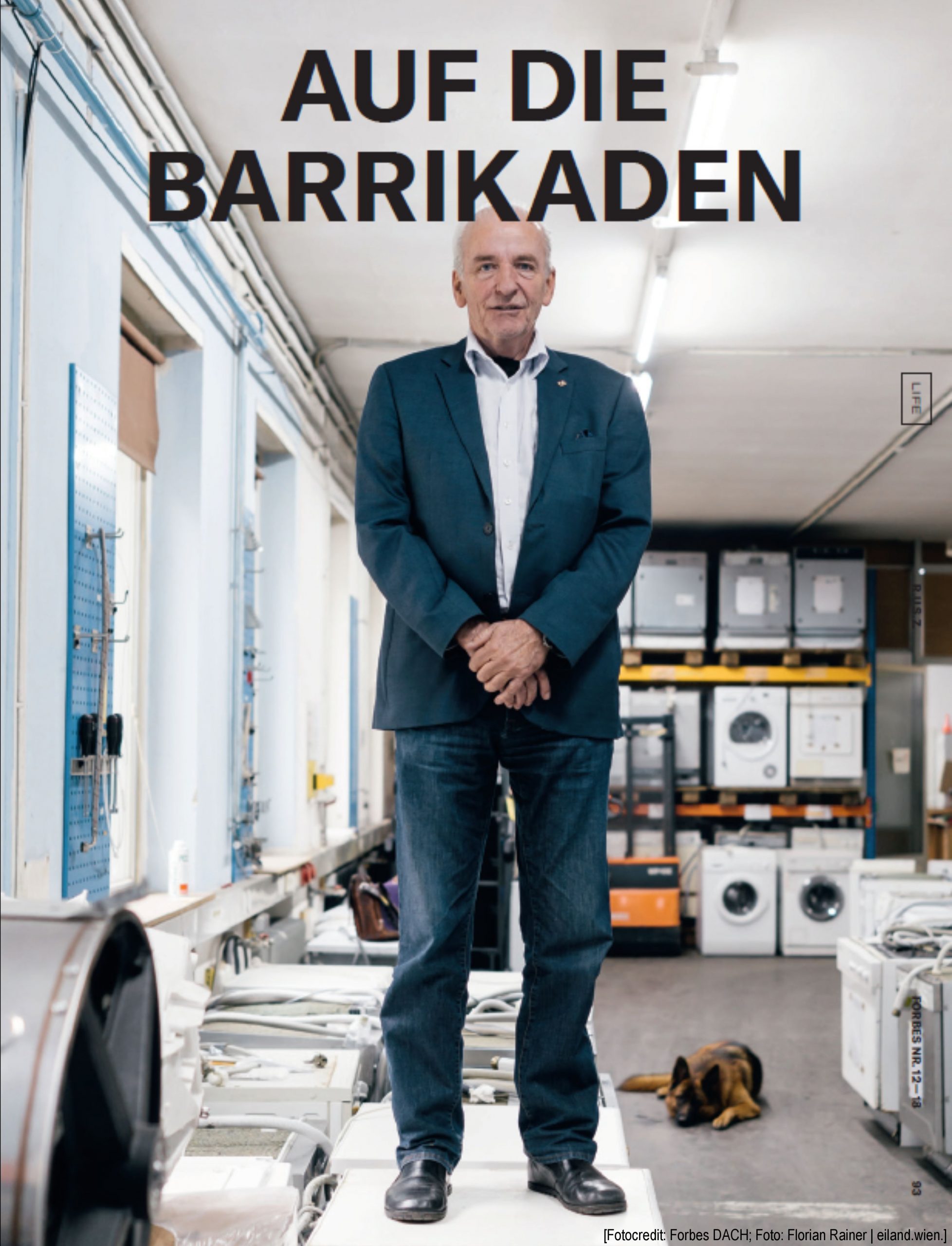The united nations has put R.U.S.Z on the SDG Good Practices list and is recommending that our model be replicated and upscaled.
„Repairs for Future! Creating a solid repair infrastructure in Europe to save fossil resources, our climate and to leave no one behind. An Austrian replicable multi-stakeholder approach“
... this is the short description that introduces our entry in the database in which the Department of Economic and Social Affairs (UN DESA) collects showcase projects and success stories in the implementation of Agenda 2030 and the SDGs (Sustainable Development Goals) in order to disseminate them globally.
For us, this represents one of the highest awards we have received in our 23-year history!
The entry, as written by R.U.S.Z Managing Director Sepp Eisenriegler, is as follows:
Introduction
As the founder, owner and managing director of a social enterprise for the common good, I turned the solution to a social challenge into my business model 22 years ago. The socio-ecological impact of R.U.S.Z goes far beyond the operational contributions to extending the product life of electrical and electronic appliances - and thus to resource conservation and climate protection: consistent lobbying, especially at the EU level, led to the questioning of our linear economic system by the EU institutions and ultimately to regulatory measures within the framework of the circular economy system. Beneficiaries are in particular the next generations of the human species.
Description
The decision of the EU institutions to prescribe a systemic change from a linear to a circular economy cleared the way for the "Europeanisation" of our Austrian standard ONR 192102:2014 (repair-friendly design for electrical appliances). After the presentation of the standard at the European Environment Agency in Copenhagen, it was only a short way to the standardisation bodies of the EU. The result, EN 45554 and product-specific standards, will be referenced in the Ecodesign Directive and short lived appliances will no longer be offered in the EU from 2025 onwards. A solid repair infrastructure is currently missing. With 22 years R&D experience as a repair service provider we offer our repair, re-use and PSS knowhow to interested franchisees to scale up our social, environmental and economic business model.
Contribution to SDG Implementation
Starting off as a Work Integration Social Enterprise (WISE) R.U.S.Z followed a Circular Economy Concept. Our business model included Quality Education (SDG 4) and Decent Work and Economic Growth (SDG 8). After turning the WISE into a private Social Enterprise we have successfully added Responsible Consumption and Production (SDG 12), Climate Action (SDG 13) and Partnerships for the Goals (SDG 17) into our business concept. Our Lobbying network includes EU institutions (EP, DG ENVI, JRC, EESC), Standardisation bodies (CEN, CENELEC, ETSI, ASI, DIN) and NGOs (Right to Repair, ECOS, EEB, RREUSE).

Implementation methodologies
The increasing depletion of resources through the production of short-lived electrical and electronic appliances is ethically unacceptable, reduces the availability of resources for future generations and heats up the climate (UN Environment: Global Ressources Outlook 2019). In line with the EU regulatory policy currently in preparation, the circular economy action plans, which R.U.S.Z is proactively helping to realise, together with our EU network partners we are creating the prerequisite that repairs are worthwhile again. In the meantime there is consensus within the EU institutions that the goals of the circular economy can only be achieved through durable, repair-friendly designed products which can easily be prepared for re-use. As a successful lobbyist in Brussels for many years, I am still surprised from time to time about the willingness of the EU institutions to cooperate when I can present well-prepared concerns at the (politically) right time together with my lobbying network partners. Thus, the Austrian standard ONR 192102:2014 was a most welcome door opener for the EU standardisation of Energy related products - Material Efficiency for Ecodesign (EC-Mandate 543). I was in a leading position at CEN-CLC JTC 10 until our ambitious criteria for EN 45554:2020 were on track. As a pioneer company of the common good economy, R.U.S.Z measures its progress through the audited common good balance sheet. Our well prepared eco-social franchising is being rolled out in Austria and internationally: By 2025, we plan to have 23 franchise partners in the D-A-CH region and in the EU capitals.
Results
R.U.S.Z is a private Social Business and, in addition to its day-to-day repair services, it is also a centre for consumer protection and sustainability. During the last 22 years we have re-invented a reputable repair service in Austria and, based on successful lobbying and networking, are now the best known independent repair company in the EU. We also run Austria's largest re-use centre for large household appliances and offer a weekly repair café to cope with the new status symbols of a growing sustainable consumption-minority and to leave no one behind. R.U.S.Z has founded the ReparaturNetzWerk Wien, an association of all reputable repair businesses in the greater Vienna area. Furthermore, R.U.S.Z was co-founder of the European umbrella organisation for social economy enterprises RREUSE, a lobbying network on the EU level and its national counterpart RepaNet Austria.

Factors and Constraints
R.U.S.Z was always an environmental and social beacon-project. The EU Circuly Economy regulatory policy, Fridays for Future and, unexpectedly, the COVID-19 pandemic have changed the mindset of many consumers towards sustainable consumption. Lobbying for a more Circular Economy, technical innovations (Tuning of WMs), setting (EU) standards (ONR 192102:2014, EN 45554:2020) and new sustainable consumption patterns (Product Service Systems, PSS) have paved our way onto economic feasibility of repair services. Now we are in the position to set up a social franchising system at the right time and scale up our environmental, social and economic impact.
Sustainability and replicability
Currently R.U.S.Z is responsible for extending the product life of some 9.000 electrical appliances per year in Vienna. Why is this a sustainable outcome of our best practice? Over 50% of the total environmental impact in the life of household appliances is caused by production and distribution (Steiner, et.al.: Timely Replacement of White Goods, 2005)! 50% of all global carbon emissions are caused by the extraction and processing of natural resources (UN Environment: Global Ressources Outlook 2019): Every repair is an individual contribution to climate protection! Since repair services have become economically feasible during the last two years we have already started to scale up our sustainable impact: Our Social Franchising system is open for interested Franchisees all over Europe. Doing so we support the implementation of 5 SDGs in other places: Quality Education, Decent Work and Economic Growth, Responsible Consumption and Production, Climate Action and Partnerships for the Goals.
COVID-19 Impact
Repair services, sales of Re-Use appliances and product service systems have proved to be a resilient business model during the last two years. In combination with the EU Green Deal, the Circular Economy Package and the NextGenerationEU program it will perform even more economically feasible. In 2019 we made a profit of some 100.000,- EUROS, which is 10 % of our revenues in the greater Vienna Region. Even though we had to close down in 2020 for 4 weeks due to the COVID-19 pandemic we managed to have the same economic result last year. What still needs to be done: Compensate market failure by implementation of a socially just environmental tax reform VAT reduction for repair services, re-use products and PSS (Product Service System) implementation of Repair Networks with quality management criteria.
